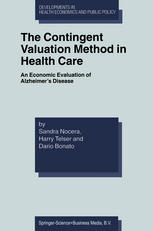

Most ebook files are in PDF format, so you can easily read them using various software such as Foxit Reader or directly on the Google Chrome browser.
Some ebook files are released by publishers in other formats such as .awz, .mobi, .epub, .fb2, etc. You may need to install specific software to read these formats on mobile/PC, such as Calibre.
Please read the tutorial at this link: https://ebookbell.com/faq
We offer FREE conversion to the popular formats you request; however, this may take some time. Therefore, right after payment, please email us, and we will try to provide the service as quickly as possible.
For some exceptional file formats or broken links (if any), please refrain from opening any disputes. Instead, email us first, and we will try to assist within a maximum of 6 hours.
EbookBell Team

0.0
0 reviewsIn the future, as our society becomes older and older, an increasing number of people will be confronted with Alzheimer's disease. Some will suffer from the illness themselves, others will see parents, relatives, their spouse or a close friend afflicted by it. Even now, the psychological and financial burden caused by Alzheimer's disease is substantial, most of it borne by the patient and her family. Improving the situation for the patients and their caregivers presents a challenge for societies and decision makers. Our work contributes to improving the in decision making situation con cerning Alzheimer's disease. At a fundamental level, it addresses methodo logical aspects of the contingent valuation method and gives a holistic view of applying the contingent valuation method for use in policy. We show all stages of a contingent valuation study beginning with the design, the choice of elicitation techniques and estimation methods for willingness-to-pay, the use of the results in a cost-benefit analysis, and finally, the policy implica tions resulting from our findings. We do this by evaluating three possible programs dealing with Alzheimer's disease. The intended audience of this book are health economists interested in methodological problems of contin gent valuation studies, people involved in health care decision making, plan ning, and priority setting, as well as people interested in Alzheimer's disease. We would like to thank the many people and institutions who have pro vided their help with this project.